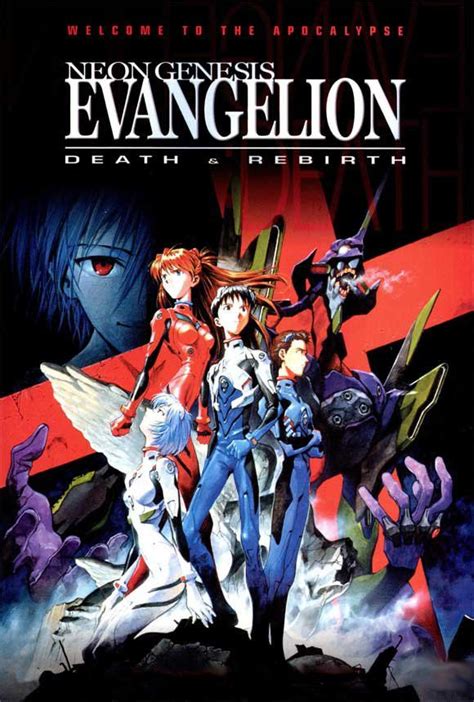Neon Genesis Evangelion

Description:
Neon Genesis Evangelion is a groundbreaking anime series set in a post-apocalyptic world where humanity's last hope lies with the Evangelion bio-mechs piloted by teenagers. The series explores complex themes such as existentialism, identity, and the human psyche, blending intense action with deep philosophical questions. As the young pilots confront both external and internal threats, they grapple with their own emotions and the mysterious origins of their world.Keywords:
Psychological, Existentialism, Mecha, Trauma, ApocalypseWhy was Neon Genesis Evangelion controversial?
"Neon Genesis Evangelion" is controversial for several reasons. Firstly, it subverts traditional mecha anime tropes, introducing complex psychological themes, existentialism, and deep character exploration, leading to mixed reactions from audiences expecting more conventional storytelling. The series also addresses mental health issues, trauma, and depression, which some viewers found unsettling. Additionally, its ambiguous ending and the use of religious symbolism sparked debates about interpretation and meaning, contributing to its lasting impact and polarized opinions.
In what order do I watch Evangelion?
To watch "Neon Genesis Evangelion," follow this order:
1. **Neon Genesis Evangelion (TV Series)** - 26 episodes (1995-1996).
2. **Neon Genesis Evangelion: Death and Rebirth** - A recap film (1997).
3. **Neon Genesis Evangelion: The End of Evangelion** - A film that serves as an alternate ending to the series (1997).
For the rebuild films, you can watch them after the original series:
4. **Rebuild of Evangelion Series**:
- Evangelion: 1.0 You Are (Not) Alone (2007)
- Evangelion: 2.0 You Can (Not) Advance (2009)
- Evangelion: 3.0 You Can (Not) Redo (2012)
- Evangelion: 3.0+1.0 Thrice Upon a Time (2021)
Enjoy the journey!
Is there LGBTQ in Neon Genesis Evangelion?
"Neon Genesis Evangelion" explores complex themes, including identity and sexuality, which have led to interpretations of LGBTQ representation. The relationship between characters, particularly Shinji Ikari and Kaworu Nagisa, is often viewed as a significant representation of bisexuality and homoerotic tension. Additionally, the character of Misato Katsuragi can be interpreted as having fluid sexual orientation. While the series doesn't explicitly label characters as LGBTQ, it includes themes and dynamics that resonate with LGBTQ audiences and discussions.
Is Evangelion the darkest anime?
"Neon Genesis Evangelion" is often considered one of the darkest anime due to its exploration of heavy themes such as existentialism, depression, and the human psyche. The series delves into the emotional struggles of its characters, particularly the young pilots, as they confront trauma, isolation, and the burden of saving humanity. Its complex narrative and symbolic imagery, combined with graphic violence and psychological horror, contribute to its reputation. While it’s not the only dark anime, its profound impact and thematic depth make it a standout in the genre.
Explore More Categories:
Indie Film Music Culture Quest Cult High School French Cinema Cyclicality Historical Drama New York City Alien British Cinema Science Fiction Women Immaturity Architecture Manipulation Star Wars Unrequited Love Prophecy Totalitarianism Relationships Vampirism Watergate Scandal Existentialism Classic Hollywood